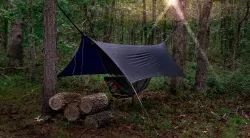My greatest informal learning experience: a collection of stories

Informal learning can take many forms – knowledge can be passed on from anyone, in any situation, and it may not even be obvious at first that the learner has acquired knowledge or skills at all. Perhaps someone offered you advice and this has been something you have taken with you into the future, or a casual conversation allowed you to gain a new skill that has positively impacted on you in a multitude of ways. Informal learning takes place with no clear structure to the learning process and often does not reveal to the learner that they have anything to learn until after the fact. It is arguably the route to learning with the least promise of gain, and yet it can be the most influential of all learning forms… depending on what you have learned.
To celebrate EPALE’s current Non-formal and Informal Learning theme, we decided to explore the informal learning experiences of staff and create a blog post that proves they can be invaluable, influential and inspirational.

Zoe learned about property
Ecorys team member Zoe has lots of informal learning experiences that have had a positive impact on her life. Perhaps the biggest one is what she has learned about the property market from her fiancé who works in the industry.
Zoe’s fiancé frequently discusses what is happening at work and has imparted on Zoe the knowledge of buying and leasing, particularly that of buying a flat but only partly owning it, as the building is often managed by another individual or organisation. This can restrict what the buyer can do in terms of altering the property and adds pressure to sell it on within an agreeable time period relating to the length of the lease – little time left on the lease significantly impacts the value of the property.
“I’ve learned so much from my fiancé about the property market. We are thinking about buying our own house in the next few years and now I feel much better informed to make decisions about the right kind of property for us.”
Zoe has gained this knowledge at a very important time in her life – she can use it to make confident decisions about her future.
Theodore learned about European culture
Colleague Theodore enjoys receiving gifts from Erasmus+ colleagues working in other EU countries.
“When colleagues abroad celebrate their national holidays, they often send us gifts such as chocolates or national sweets. This has taught me about culture – not just about the kinds of foods enjoyed in other countries, but also the holidays celebrated and how they relate to tradition, religion and national customs.”
Cards and notes of well-wishes have also introduced Theodore to some of the vocabulary of other languages. He can now greet people in Lithuanian and has a range of Spanish vocabulary.
An understanding of other cultures and languages can improve communication, break down cultural barriers and make for an easier travelling experience, all of which can have a positive impact on the life of the learner.

Emma learned about survival techniques
Ecorys staff Emma joined her friend for a woodland barbeque and left with lots of knowledge about surviving in the wild. Her friend likes to spend plenty of time in the great outdoors and has been building his own campsite.

Building camp requires a knowledge of woodland materials, such as different trees and the strength of different kinds of woods, as well as understanding how to source vines that can be dried out and used as rope to hold structures together. Knowing how to make a waterproof bed using a hammock and tarpaulin is essential for keeping dry and avoiding the muddy floor.
“I used to think this kind of activity was only useful if you were in the Scouts, but I’ve learned so much about what to do if I find myself in an isolated situation without many resources. I had a lot of fun watching my friend prepare the campsite and I’m definitely keen to try preparing my own campsite in the future.”
Informal learning can also introduce the learner to interests they didn’t know they had and help them to continue extending their skill set.
You can find the second part to this blog post here.
Don't forget to answer the poll on informal learning at the bottom of this page!
You might also be interested in:
- Turning your hobby into a career - the delights of non-formal learning (blog) – considers the reasons for developing a hobby into a career path and the kinds of personal interests best suited to non-formal learning
- European guidelines for validating non-formal and informal learning (resource) - The European Centre for the Development of Vocational Training (Cedefop) released the European guidelines for validating non-formal and informal learning
- Using contemporary dance as a tool against learning difficulties (blog) – discusses a performing arts project that aims to raise awareness of the
- problems faced by those with learning difficulties and showcase their potential
- Winner announced! Health, wellness and Adult Learning: Star Supporter Competition (blog) – find out who won the EPALE UK Star Supporter Competition that celebrated content on the theme of Health, Wellness and Adult Learning!




